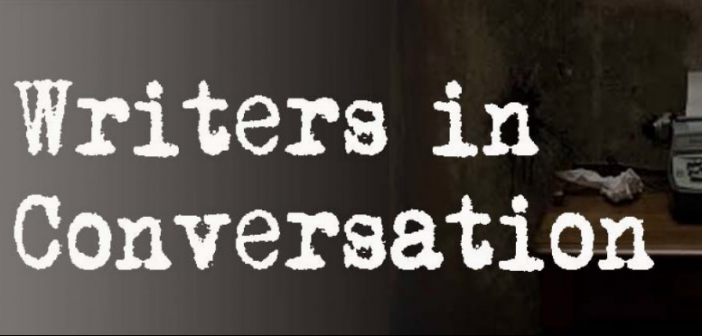Although especially handy for people who want to go into any sort of career that involves putting pen to paper – or finger to keyboard – the Writers in Conversation series is suitable and invigorating for anyone who has every read, seen or listened to any form of entertainment. Broad enough, but the diverse range of writers that Carole Burns, head of Creative Writing at the University of Southampton, has welcomed to the conversation to discuss the process of writing and read from their work broadens that pool even more. All of the guests have a lot to say and to give, not just concerning the process of writing itself, but also about what to expect from a career as a writer (it’s not all film rights and roses).
Despite the diversity of their conversations, certain themes emerge and continually resurface throughout (mostly pointing out just how bloody hard it is to write a book and get it published). Here are some fun, and not so fun, facts to come to terms with, as learnt from Philip Hensher, Tyler Keevil, Evan Placey, Claire Fuller and Jennifer Egan.
Every person writes differently
Bashing it out in one night like a first year essay when the inspiration (or more likely fear) hits, as Evan Placey wrote Girls like That, to years of extensive research culminating in Jennifer Egan’s new novel Manhattan Beach, there is no right or wrong way to create a story. Many of the writers favoured writing chronologically so as to reap the rewards for writing the exciting bits after slogging their way through everything else, as vehemently supported by Philip Hensher. Egan didn’t even realise that A Visit from the Goon Squad was going to be a novel until three chapters in.
Characters are people too
Many of the writers personify their characters (well, even more than they had already done by creating them) when speaking of them, describing them like they would a friend or colleague, as Claire Fuller does with the two daughters in Swimming Lessons, and grumbling that they would not do what they wanted them to, as with Hensher and a plotline involving a boy and a girl that never got it on, no matter how much he wanted them to.
Most writers don’t like the process of writing
Most if not all of the writers freely admit that they don’t like the process of writing itself. Fuller identifies that it isn’t the writing she looks forward to at all, but the process of editing.
Writing is rewriting and acknowledging failure
All of the writers mention early drafts of work either written from another character’s perspective and scrapped (Fuller on Swimming Lessons), or abandoned altogether (Tyler Keevil’s first attempt at a novel was an existential thriller set in Prague with Russian gangsters). You’ve just got to go with your gut when you know something isn’t working, and figure a way out of it, another direction you could take it, or more drastically, abandon the project completely.
Write what you know, or write what you don’t know but do your research
A lot of the authors choose to write about things that they know, avoiding the feeling of vagueness you get from a simple window-dressing, as Egan warns against. Keevil’s hands-on Burred Inlet tells the stories of men at work, doing jobs he himself did in his younger years while growing up in Canada, working in ship yards, on ice barges and planting trees. But then, if something inspires you that you don’t have innate knowledge of, you must be prepared to make an effort. Egan spent years researching diving and the Brooklyn Navy Yard for Manhattan Beach, stressing the importance of knowing the ins and outs of things as complicated as occupations. How would she know what a music producer like Benny from her novel A Visit from the Goon Squad would do on a day to day basis, and what opinions and feelings he would have gathered over the decades working in such a huge industry?
Writing is reading
All of these respected award-winning authors gushed about writers who inspired them and that they adored. Becoming a writer is more about reading, hearing from others and reacting to that, as much as it is about writing from yourself.
Don’t go it alone
Editors, friends, Jennifer Egan’s reading group that conquered In Search of Lost Time in under 7 years, all of the authors mentioned someone who had given them a gentle nudge or a bit of a shove in the right direction. You might think you’re a lone wolf, but writing is very much a collective process.
All of the Writers in Conversation events are available to watch here on the Youtube channel. Check out Rebecca Smith’s session below:



